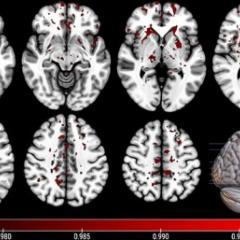Aerobic exercise can help a brain to adapt after serious injury such as a stroke, University of Queensland researchers have found.
The study compared a short bout of aerobic exercise to rest in 20 participants who had suffered a stroke within the last three years and asked them to complete a sensorimotor task of moving a digitized pen on a tablet under conflicting conditions.
Christopher Mackay from UQ’s School of Health and Rehabilitation Sciences said aerobic exercise such as walking could help improve motor learning which is important for functional independence.
“Over 65 per cent of people who have suffered a stroke are unable to complete daily activities on their own,” Mr Mackay said.
“Our study found that just 30 minutes on a treadmill at a moderate pace helped to improve motor learning.
“After the exercise, participants had improved accuracy at moving the pen across the digital tablet.
“Our findings show that incorporating aerobic exercise during the recovery process may benefit the patient as it has the potential to improve their ability to relearn daily activities.”
In Australia alone over 100 strokes occur each day and it is the leading cause of disability in adults worldwide.
While the research focused on people who have had a stroke, the findings could also be worth investigating in people with other neurological diseases.
“The findings relate to brain growth and adaptation, which are important in all people,” Mr Mackay said.
Co-authors on the paper included Professor Sandy Brauer and Dr Li-Ann Leow from The University of Queensland, Dr Mia Schaumberg from University of Sunshine Coast and Professor Suzanne Kuys from Australian Catholic University.
The study can be read in IOS Press 10.3233/RNN-211175
Media: Christopher Mackay c.mackay@uq.edu.au; UQ Communications Bridget Druery, b.druery@uq.edu.au (+61) 7 3366 3037.



